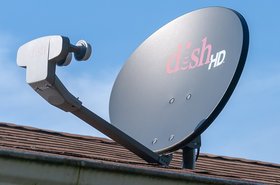A new atomic clock will keep data center equipment precisely synchronized for months, if global time services including GPS are unavailable or blocked.
The 5071B cesium atomic clock from Microchip Technology lets data centers or telecoms towers operate autonomously even if satellite time services are not available. The system allows systems such as 5G networks or underwater defense systems remain fully operational even when they cannot access the correct time from satellite systems.
Infrastructure equipment has to remain synchronized to the correct time, or network communications go awry, with data and transactions lost or corrupted. Most equipment relies on Global National Satellite Systems (GNSS) for synchronization through applications like GPS, but GNSS is susceptible to malicious attacks including jamming and spoofing, which could potentially take critical networks off the air.
The new clock is an upgrade of the existing 5071A, which has been a major component in international time systems for 30 years. It is a three-unit height (3U) 19-inch rackmount box, which can be installed in standard environments.
Atomic clocks are based on the fixed frequency of light absorbed or emitted from atoms which have precisely defined energy levels. The idea of using light frequencies to measure time was first proposed in 1873 by James Clerk Maxwell and since 1968 the standard measure of time, the second, has been defined based on the frequency of light emitted by the cesium-133 atom.
GNSS uses cesium atomic clocks to set the international time standard, and similar atomic clocks can be expected to remain in synch with that standard for long periods, and used as a reliable source when necessary.
The 5071B uses a cesium beam tube with no long-term frequency drift. It can provide accurate distance and speed measurements for radars and for communication between aircraft and control towers, making air traffic control reliable during GNSS interference.
Among the upgrades to the product, it is now fully compliant with the EU's Restriction of Hazardous Substances Directive.
Microchip did not share pricing details, but the product is available now.







